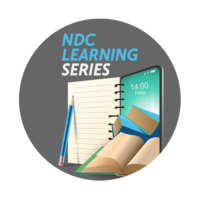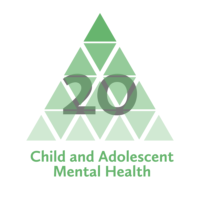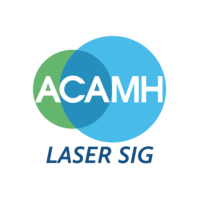Search results
-

‘NDC Learning Series’ – Medications and Physical Health
Bookings are closed. This is the fifth of the ‘NDC Learning Series’ aimed at health professionals who come into contact with children and young people who have Neurodevelopmental conditions (NDCs). We are delighted to welcome Dr. Mark Lovell and Dr. Max Davie. with a session that will focus on ‘Medications and Physical Health’. The Chair of this session is Dr. Ann Ozsivadjian.
- Event type
- Special Interest Group (SIG)
- Location
- LIVE STREAM
-

‘NDC Learning Series’ – Communication and functional skills
This is the final of the ‘NDC Learning Series’ aimed at health professionals who come into contact with children and young people who have Neurodevelopmental conditions (NDCs). We are delighted to welcome Dr. Lucy Sanctuary, and Occupational Therapist Dr. Sally Payne, to discuss ‘Communication and functional skills’. The Chair of this session is Dr. Mark Lovell.
- Event type
- Special Interest Group (SIG)
- Location
- LIVE STREAM
-

Prenatal caffeine exposure association with neurodevelopmental outcomes in 9-11 year-old children
Video abstract from Rui Zhang on her JCPP paper ‘Prenatal caffeine exposure: association with neurodevelopmental outcomes in 9- to 11-year-old children’.
Read more -

The Centre for Attention Learning and Memory (CALM) Approach to Neurodevelopmental Research – MRC Cognition and Brain Sciences Unit University Of Cambridge
Our thinking around neurodevelopmental disorders is undergoing a period of rapid change. The traditional approach, endorsed by classification systems such as the Diagnostic Statistical Manual, defines neurodevelopmental disorders such as autism and attention-deficit hyperactivity disorder (ADHD) as distinct categories.
Read more -

JCPP Editorial: Volume 61, Issue 05, May 2020
“Polygenic scores in child and adolescent psychiatry – strengths, weaknesses, opportunities and threats” by Angelica Ronald
Read more -

March 2020
The March 2020 edition of The Bridge features research digests on ‘FRIENDS’ and anxiety, CAMHS and technology training, OCD, parenting, autism and more.
Read more -

Most cited CAMH paper joint #20 of 25: Implementing routine outcome measures in child and adolescent mental health services: from present to future practice
Martin J Batty, Maria Moldavsky, Pooria Sarrami Foroushani, Sarah Pass, Michael Marriott, Kapil Sayal, Chris Hollis.
Read more
Key Practitioner Message includes; It is important to place outcomes in the context of the type of service, case complexity, diagnosis/clinical cluster and treatment goals. -

Good intentions, good enough?
Daniel Brennan, Assistant Psychologist at Ealing Intensive Therapeutic and Short Break Service (ITSBS) provides a summary of Lenehan, C. and Geraghty, M. (2017) “Good intentions, good enough?: a review of the experiences and outcomes of children and young people with learning disabilities in residential special schools and colleges”,
Read more -

Neuroscientific insight can boost learning: neuro-fact or neuro-fiction?
Earlier this year, Professor Michael Thomas and colleagues compiled an Annual Research Review for the JCPP, highlighting the contributions that neuroscience can make to understanding learning and classroom teaching. Here, we summarise their main findings, the current challenges to the field and the future of educational neuroscience.
Read more -

Neurodevelopmental Disorders, an interview with Dr Max Davie
Dr. Max Davie talks about Neurodevelopmental Disorders, and how you can get involved in ACAMH’s Neurodevelopmental Special Interest Group.
Read more